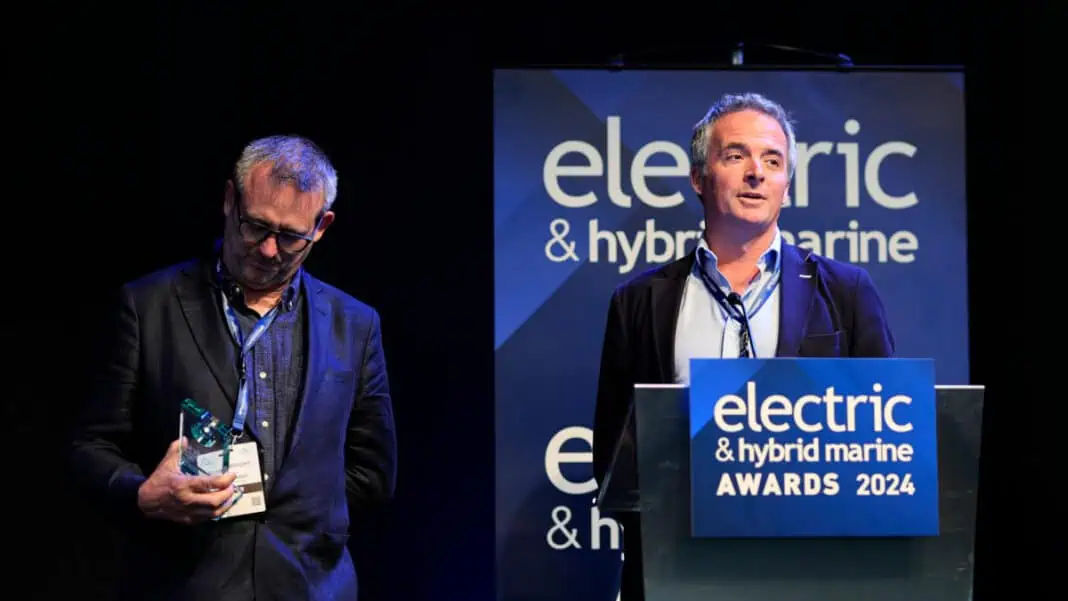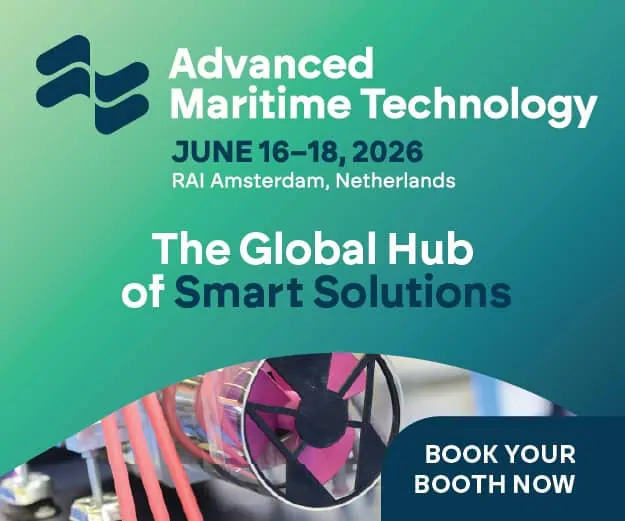Tidal Transit, supplier of purpose-design crew transfer vessels (CTVs) for the offshore wind industry, has won the award for ‘Environmental Achievement of the Year – Propulsion System Design’ at the 2024 Electric & Hybrid Marine Awards for its pioneering diesel-to-electric CTV retrofit project, e-Ginny.
Now in its eighth year, the awards celebrate the world’s leading engineers, innovations and products in electric and hybrid marine sector. Judged by a panel of world-leading journalists, industry experts and academics, the category celebrates the latest breakthroughs in propulsion technologies and system design.
Tidal Transit was recognised for its world’s first design and engineering project to retrofit a diesel-powered CTV, Ginny Louise, with over three megawatt-hours (MWh) of battery capacity, electric motors and propulsion pods. The resulting vessel, e-Ginny, will not only be 100% zero emissions in operation, but also boasts increased manoeuvrability, improved safety, and be near-silent for passengers and passers-by.
The Innovate UK-funded, multi-stakeholder project is being undertaken with partners Goodchild Marine Services, Artemis Technologies and MJR Power & Automation, and with key equipment suppliers Volvo Penta, Danfoss and Corvus Energy.
Adam Wright, director at Tidal Transit, commented:“We’re delighted to be taking home another award for our innovative work with e-Ginny. The Electric Hybrid Marine Expo attracts big names from across the sector and we’re honoured to be recognised alongside them.”
Leo Hambro, commercial director at Tidal Transit, added: “This award win reflects the hard-work and dedication of our team who are committed to transforming the future of the offshore wind industry. We’re currently working closely with our partners on the next stage of e-Ginny project and are excited to bring the industry along with us.
“With global offshore wind capacity set to soar even further as the UK’s electricity grid continues to decarbonise and increase the share of renewables in the energy mix, it’s now more important than ever to make the transition to electric and hybrid crew transport.”













